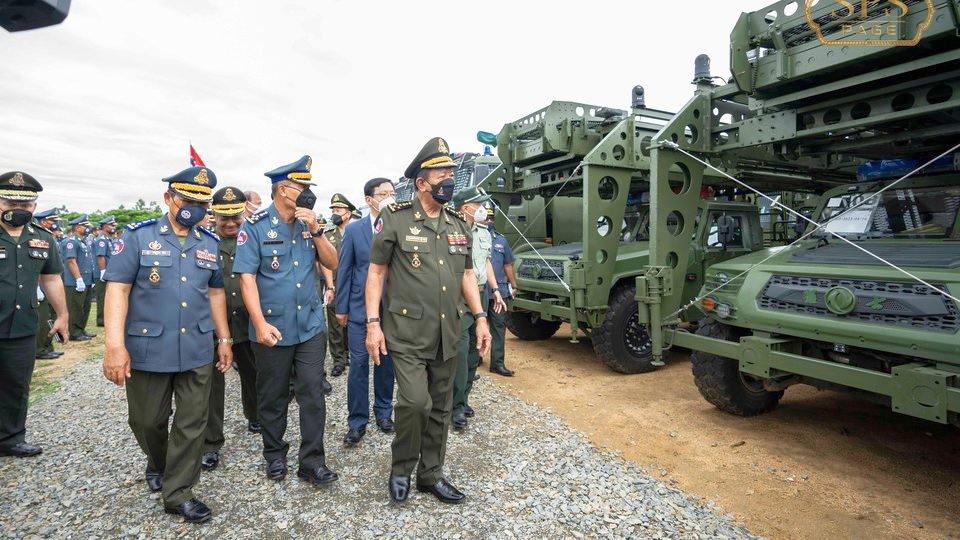International border arbitration is impossible for Thailand
Cambodian army officers inspect the arrival of Chinese military equipment.
The prime ministers of Thailand and Cambodia are categorical not to cede one inch of their territory. June 14 sees the bilateral meeting of the Joint Boundary Commission but that won’t consider the meaty issues of borders in four contested areas, ownership of a clutch of temples or even the recent closure of a land crossing by the Cambodian side. If the two ASEAN partners can’t solve their territorial issues alone – a foregone conclusion for sure – Cambodian foreign minister Prak Sokhonn will lead a team to the International Court of Justice (ICJ) in Holland for “a final resolution”.
Of course, he will. The ICJ has already ruled twice – howbeit in majority and not unanimous judgments – in Cambodia’s favour by awarding her the Preah Vihear ancient temple in the so-called Emerald Triangle. But the judgments in 1962 and 2013 left the surrounding areas to local discussions. Consequently, the Thai army erected barbed wire fences immediately outside the temple on the Thai side of the promontory.
Thailand had declined as early as 1960 not to be bound by ICJ judgments. Both Bangkok and Phnom Penh quote the Franco-Siam treaties of 1904 and 1907, when Cambodia was part of the French colonial empire, but there are no agreed maps ancient or modern. Bangkok’s position in any case is that the French negotiators tricked the naive Siam side into simplistic dividing lines which were ambiguous. Similar interpretive, post-colonial problems have arisen with the Cambodia-Laos border and the Singapore-Malaysian-Indonesian dispute about tiny islands, though without the heated nationalistic rhetoric.
Cambodian soldiers clap a no-surrender speech by the Phnom Penh government.
If the current Pheu Thai government were to agree to international arbitration, Thai nationalists – there is no shortage – would immediately launch a campaign about betrayal with street demonstrations a foregone conclusion. If they got out of hand, the military would be tempted to repeat 2014 and declare a coup to restore order and protect Thai integrity. There are already strong rumors of former enemies – red shirts and yellow shirts – making plans to unseat the Shinawatra administration if it fails to deliver a fervently nationalistic agenda.
Bangkok’s negotiating position is not unreasonable. China has ignored the 2016 ruling of the Permanent Court of Arbitration which denied Beijing’s claim to mop up virtually the whole of the South China Sea in a cow’s-tongue sweep. No wonder China is unusually quiet about the current goings-on at Thai-Cambodian borders. In the United States, Donald Trump has presidentially waved aside international agreements as having no relevance and has specifically sanctioned the International Criminal Court. Even as Israel now bombs Iran in a pre-emptive strike, it is hard to justify the move in terms of the United Nations charter. In other words, the world today is far from being subservient to international protocols.
Given that ASEAN does not usually intervene in disputes between members, there is no acceptable international forum to arbitrate Thai-Cambodian borders. As the two countries create inconvenience at border posts, try to damage each other’s economy and indulge in threatening language, the hope is that weary and tense troops eventually return to barracks. A war would be unpredictable. Though Thailand has a superior airforce and a huge military budget, Cambodia now has the advantage of recently-arrived Chinese artillery, drones and other advanced military technology. Better not to risk it.



